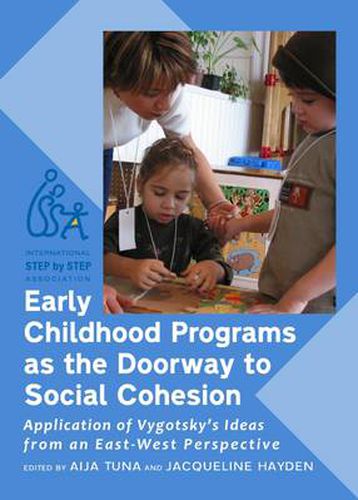Readings Newsletter
Become a Readings Member to make your shopping experience even easier.
Sign in or sign up for free!
You’re not far away from qualifying for FREE standard shipping within Australia
You’ve qualified for FREE standard shipping within Australia
The cart is loading…






Over the past decade, early childhood education and care has moved onto the policy agenda in many countries. There is growing recognition that early access to quality education and appropriate care provides young children with a good and fair start in life. While scientific research constantly brings new insights into brain development and the enormous importance of the first years of a child’s life, the early 20th century theories of one Russian psychologist, Lev S. Vygotsky (1896-1934), have had profound and diverse impacts upon the early childhood education traditions in both the East and the West and remain highly relevant today.Recently, more than 750 early childhood education researchers, practitioners, policymakers, and NGO activists from around the world met in Prague at Exploring Vygotsky’s Ideas: Crossing Borders, the 17th Annual Conference of the European Early Childhood Education Research Association (EECERA), hosted by the International Step by Step Association (ISSA). In an effort to share many of the intriguing ideas and practices discussed during the conference with a broader audience, ISSA invited leading presenters to explore their experiences in early childhood through the prism of Vygotsky’s theories and ideas. The result of ISSA’s initiative is this volume of papers which examine Vygotsky’s legacy on early childhood education systems in both the East and the West, offering ideas which can be used to work for the benefit of children and societies across the globe.
$9.00 standard shipping within Australia
FREE standard shipping within Australia for orders over $100.00
Express & International shipping calculated at checkout
Over the past decade, early childhood education and care has moved onto the policy agenda in many countries. There is growing recognition that early access to quality education and appropriate care provides young children with a good and fair start in life. While scientific research constantly brings new insights into brain development and the enormous importance of the first years of a child’s life, the early 20th century theories of one Russian psychologist, Lev S. Vygotsky (1896-1934), have had profound and diverse impacts upon the early childhood education traditions in both the East and the West and remain highly relevant today.Recently, more than 750 early childhood education researchers, practitioners, policymakers, and NGO activists from around the world met in Prague at Exploring Vygotsky’s Ideas: Crossing Borders, the 17th Annual Conference of the European Early Childhood Education Research Association (EECERA), hosted by the International Step by Step Association (ISSA). In an effort to share many of the intriguing ideas and practices discussed during the conference with a broader audience, ISSA invited leading presenters to explore their experiences in early childhood through the prism of Vygotsky’s theories and ideas. The result of ISSA’s initiative is this volume of papers which examine Vygotsky’s legacy on early childhood education systems in both the East and the West, offering ideas which can be used to work for the benefit of children and societies across the globe.